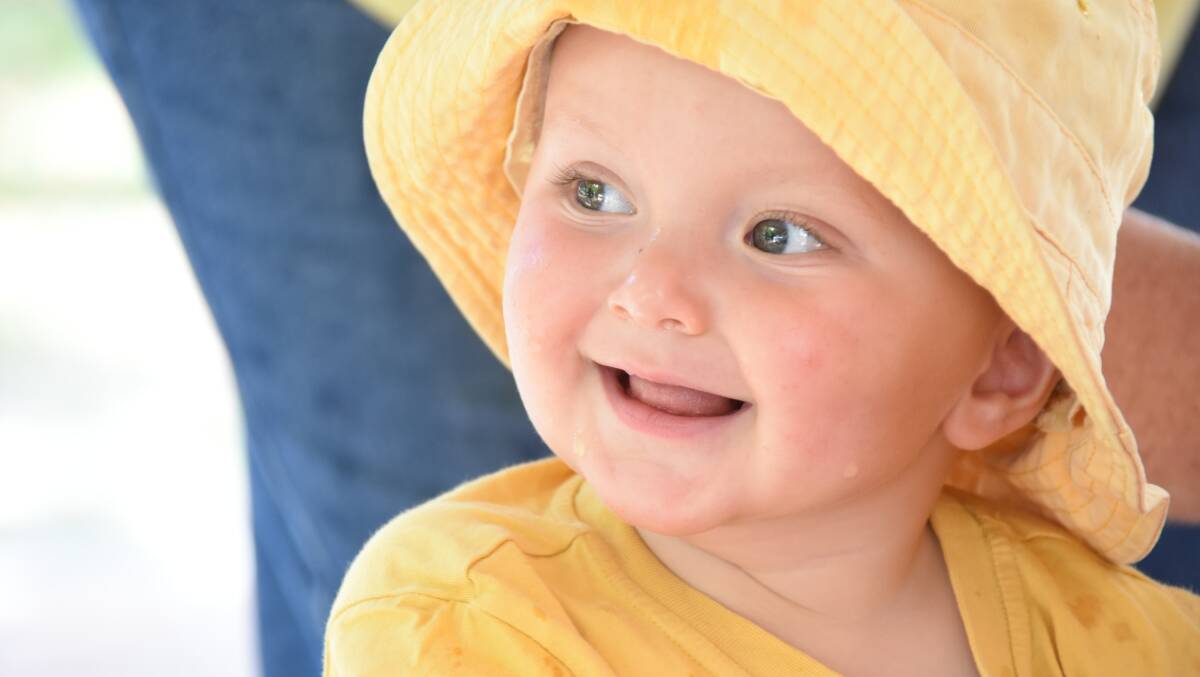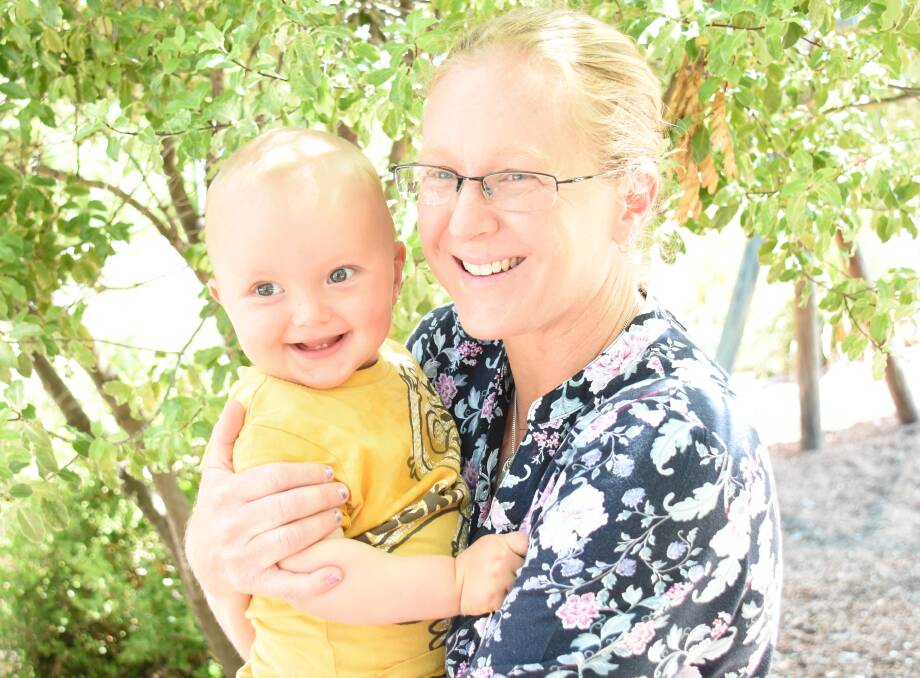
The Johnston family has a life lesson for us all, to value each and every day, but it comes at a huge cost to them as their baby Tommy battles a life-limiting disease.
Subscribe now for unlimited access.
or signup to continue reading
After Tommy was diagnosed with Niemann-Pick Type C (NPC) disease, mum Pip said it was just devastating to face a roomful of specialists whose treatment advice was to ‘take him home and enjoy him while you can’.
The hardest question she has had to face came from Tommy’s big sister Jessica who asked if he was going to die, and Pip said honestly ‘without treatment, yes he will’.
While making sure they slow down their hectic lives to appreciate family time, Pip and husband Paul have set about exploring all treatment options. Pip travelled to a UK NPC seminar and has connected with other affected families around the globe to track what those options are.
While this means the Johnstons don’t feel as isolated as they keep track of other families’ journeys, it comes with its own challenges as those they’ve come to know lose their little ones to the disease.
“Putting faces to the names adds another perspective,” Pip said.
There are a number of overseas trials but Tommy hasn’t qualified for any so far, although they’re trying to arrange for compassionate use of drugs that may delay the progression of symptoms.
Pip said there was a drug in use in Australia but a change of ownership in the pharmaceutical company meant it is no longer available. She finds the battles with bureaucracy draining and said it’s hard to get specialists to take up the challenge.
She doesn’t rule out seeking help overseas but would prefer to stay in Australia.
At this stage Tommy shows no signs of the NPC apart from a slightly-extended abdomen due to a buildup of cholesterol enlarging his liver and spleen. In fact he’s one of the happiest and most adorable one-year-olds you will come across, and Pip said he’s so friendly he’ll go to anyone.
Typically those afflicted with Niemann-Pick Type C don’t survive far into their teenage years, after declining in health over a decade. In other cases, however, the decline can happen over just a couple of years or even months.
Pip knows of one family that lost three children before the age of three.

As it’s a recessive genetic disease, with each child of the family having a 25 per cent chance of being afflicted, the Johnsons have had four-year-old Annabelle and seven-year-old Jessica tested and are anxiously awaiting the results. The disease typically follows a similar progression in a family, however, so they remain hopeful that the girls aren’t affected.
Tommy was born healthy but developed jaundice after a few days. Investigations resulted in him becoming the youngest person in Australia to be diagnosed with NPC. Pip said there are only 25 children in Australia with disease, including some siblings.
The Australian NPC Disease Foundation has proven to be a great support, as the family set about re-prioritising their lives.
“It’s hard to shift from looking to the future,” Pip said.
The prognosis initially took away all their hope, but she said no-one really know how much time they’ve got.
“And we’ve got heaps of ideas.”

